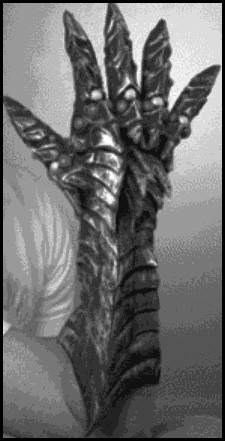
"What? I can't hear you, this must be a bad line," says Alice Kauffman, from her apartment on 48th Street.
"I'm no further forward than when I came here six weeks ago," says Désirée, risking a slight increase of volume. "The first thing I do every morning is to tear up what I wrote the day before. It's driving me crazy."
A great sigh, like a bellows emptying, comes down the line from New York to New Hampshire. Alice Kauffman weighs two hundred and thirty pounds and runs her agency from her apartment because she is too heavy to travel comfortably even by taxi to another part of Manhattan. If Désirée knows her, and she does know Alice very well, her agent will at this moment be sprawled on a divan with a pile of manuscripts on one side of her massive hips and an open box of Swiss cherry-liqueur chocolates on the other. "Then quit, honey," says Alice. "Check out tomorrow. Run."
Désirée looks nervously over her shoulders, fearful that this heretical advice might be overhead. "Where to?"
"Give yourself a treat, a change of scene," says Alice. "Take a trip someplace. Go to Europe."
"Hmmm," says Désirée thoughtfully. "I did get an invitation to a conference in Germany, just this morning."
"Accept," says Alice. "Your expenses will be tax-deductible."
"They were offering to pay my expenses."
"There'll be extras," said Alice. "There always are. Did I tell you, by the way, that Difficult Days is going to be translated into Portuguese? That's the seventeenth language, not counting Korea which pirated it."
Far away in Germany, Siegfried von Turpitz, who sent the conference invitation to Désirée, is asleep in the bedroom of his house on the edge of the Black Forest. Tired from his long drive, he lies to attention, on his back, his black hand outside the sheets. His wife, Bertha, asleep in the other twin bed, has never seen her husband without the glove. When he is taking a bath, his right hand dangles over the side of the tub to keep dry; when he takes a shower, it projects horizontally from between the curtains like a traffic policeman's signal. When he comes to her bed she is not always sure, in the dark, whether it is a penis or a leather-sheathed finger that probes the folds and orifices of her body. On their wedding night she begged him to remove the glove, but he refused. "But if the lights are out, Siegfried?" she pleaded. "My first wife asked me to do that once," said Siegfried von Turpitz cryptically, "but I forgot to put the glove back on before I fell asleep." Von Turpitz's first wife was known to have died of a heart attack, found one morning by her husband lying dead in bed beside him. Bertha never asked Siegfried again to remove the glove.
David Lodge
©1985 Penguin Books